+91 92050-84085
Mon-Sat 9am-7pm
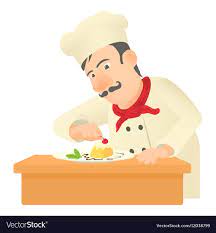
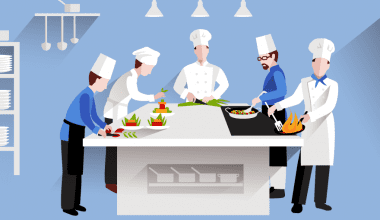
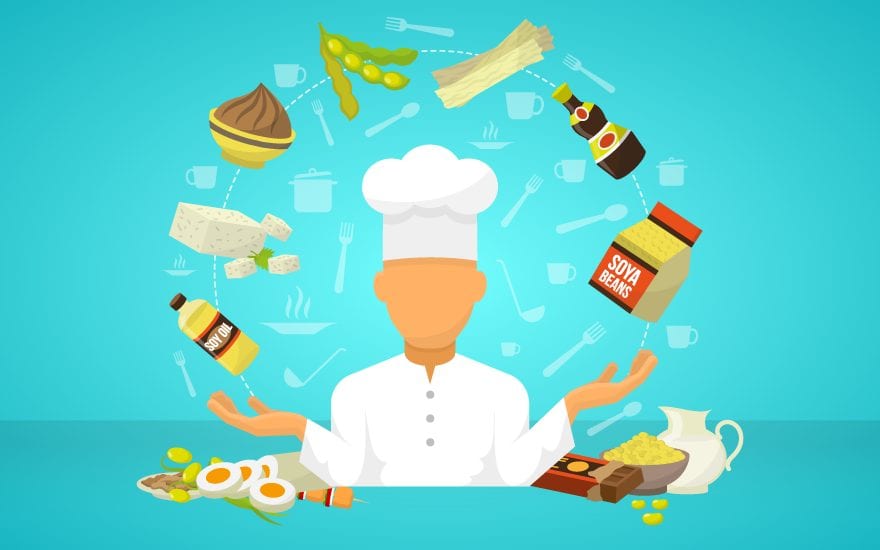
If having a kitchen, instead of the cubicle as your workplace as well as not being a slave to a computer excites you and you'd rather create your masterpiece using food, then culinary arts is your field. There are different responsibilities one may have to take up depending on the job role, starting from Preparing food, baking, presentation of food, supervision of kitchen etc. This job may require working across different locations and time-zones, which could be extremely exciting!
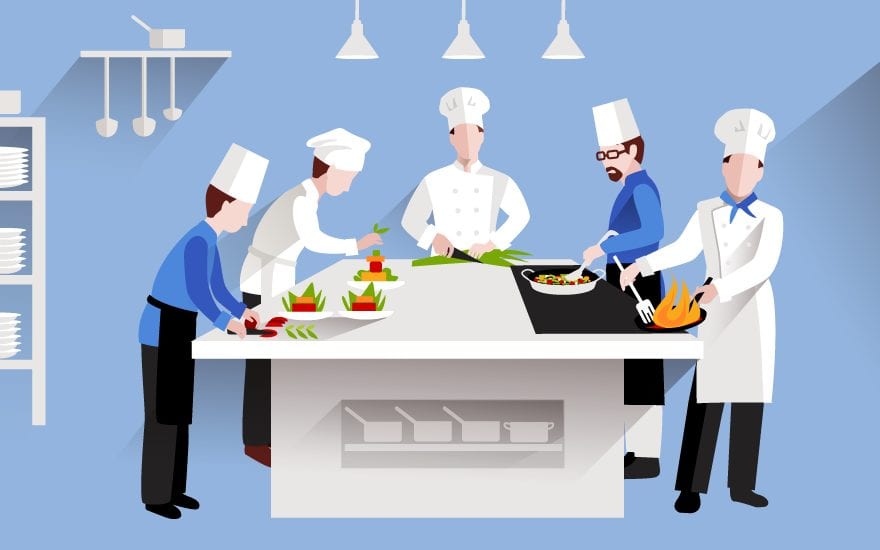
How to Pursue a Career in Culinary Arts
|
Stream |
Graduation |
After Graduation |
After Post Graduation |
|
|
Path1 |
Clear Class XII in any stream |
Pursue BA. Culinary Arts/ Hotel Management Catering & Technology (HMCT) for 4 years |
Pursue Diploma/Post Grad Diploma for 6 months to 1 year |
- |
|
Path2 |
Clear Class XII in any stream |
Pursue BBA in Hospitality and Culinary Education B. Sc. in Catering and Culinary Arts for 3 years |
Pursue Diploma/Post Grad Diploma for 6 months to 1 year |
- |
|
Path3 |
Clear Class XII in any stream |
Pursue Diploma in Chef's Management/ Diploma or Degree in Hotel Management for 3 years |
Pursue Diploma/Post Grad Diploma in chef's management for 1 year |
- |
Important Facts
Leading Institutes
Top Culinary Arts Institutes in India
|
College |
Location |
Website |
|---|---|---|
|
IHM Aurangabad |
Aurangabad |
|
|
IHM Meerut |
Meerut |
|
|
The Oberoi |
Delhi |
|
|
International Institute of Hotel Management |
Various centres |
|
|
Culinary Academy of India |
Hyderabad |
|
|
Indian Institute of Hotel Management and Culinary Arts |
Hyderabad |
|
|
Allied Institute of Hotel Management and Culinary Arts (AIHMCA) |
Haryana |
|
|
International Institute Of Cullinary Arts Hotel Management Institute |
New Delhi |
|
|
Goa Hospitality College |
Goa |
www.goahospitalitycollege.com/admission_process_hotel_management_college_goa.php |
|
Hotel and Catering Management Institute |
Punjab |
|
|
WGSHA, Manipal University |
Manipal, Karnataka |
www.manipal.edu/wgsha/programs/program-list/ba-graduation-in-culinary-arts.html |
|
Chandigarh Institute of Hotel Management & Catering Technology, Chandigarh |
Chandigarh |
|
|
Anjuman-I-Islam's Institute Of Hotel ManagEment & Catering Technology |
Mumbai |
|
|
Asian Academy of Cuinary Art |
Kalkaji, New Delhi |
Top Culinary Arts Institutes in the World
|
Institution |
Location |
Website |
|---|---|---|
|
Institute of Culinary Education |
New York, US |
|
|
Culinary Institute of America |
New York, US |
|
|
Le Cordon Bleu |
Australia |
|
|
The International Centre for Culinary Arts (ICCA) |
Dubai, UAE |
|
|
Culinary Arts Academy |
Vitznau, Switzerland |
|
|
New England Culinary Institute Montpelier |
Vermont, US |
Culinary Arts Entrance Exams
Undergraduate
|
College |
Tentative Date |
Important Elements |
Website |
|---|---|---|---|
|
OBEROI STEP |
Feb - March (forms), April- May (Selection process) |
Round 1- Checked on candidates Grooming style, Poise, Spoken English,Round2- One-to-one Panel Meeting,Round3- Final Interview |
|
|
IHM Taj, Aurangabad |
Forms-Last Date- 30th May |
Profiling, Statement of Purpose, Group Discussion, Personal Interview |
|
|
International Institute of Hotel Management (IIHM eCHAT) |
May |
Written:Objective, MCQ's, Language comprehension, mathematical skills, data analysis and interpretation, intelligence and critical reasoning, awareness of Indian & Global Economy. |
|
|
Culinary Academy of India (BCT/CA) |
April- forms, May (exam) |
Written test, GD, PI |
|
|
Goa Hospitality College, Enrollement through both UGAT & HAT (campus test) result, Student who has valid UGAT score is given first preference. |
May |
UGAT- Written: English Language, Numerical & Data Analysis, Reasoning, GK, Aptitude |
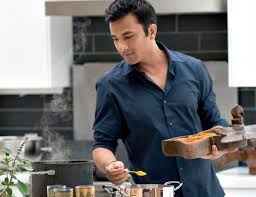
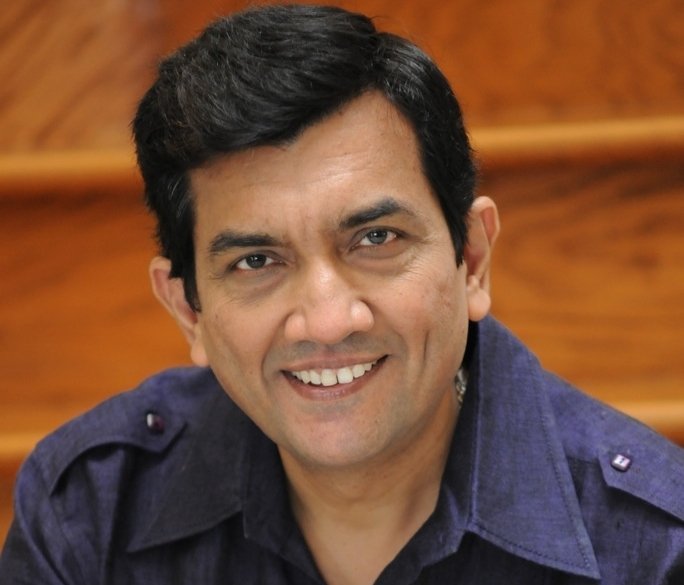
Cooking is science. Every ingredient and measurement must be exact including ordering food products or figuring out how long to cook certain items so that they're all plated at the same time. A chef needs to have an eye for details such as:
Business Sense
A good chef should also be good at running a business. He or she should always be thinking about how to make delicious food while also being cost-effective. Chefs often deal with the following tasks:
Cleanliness
Chefs need to know how to keep their kitchens sanitary. This is very important in a restaurant, where unsanitary conditions can affect the quality of the food, and can even force a restaurant to shut down. Chefs are responsible for following the local health code and dealing with:
Creativity
Working in the food industry requires creativity. Chefs must be open to incorporating new food items into menus as well as improving older recipes. Creativity and imagination will keep customers coming back for more. Chefs experiment in the following ways:
Culinary Expertise
The most important hard skill chefs need is an ability to cook, as well as knowledge of the kitchen. This broad skill includes a variety of smaller skills, including knife and tasting skills. Chefs need to be able to cook precisely and efficiently. They also need to be skilled at recognizing flavors and judging the balance of seasonings. Chefs often have experience with:
Fast-Paced Decision Making
A chef should be able to make decisions quickly and efficiently. The kitchen is a fast-paced environment, and a chef has to make numerous decisions at once. They should be able to:
Motivational Management Style
A good chef will motivate those working in the kitchen. He or she should be able to keep everyone working at a fast, efficient pace by demonstrating the following traits:
Organization
Chefs must be very organized in the kitchen. Often, they have to work on a variety of tasks at once and must do so while keeping the kitchen clean and safe. They must create order and structure in the kitchen. They do this in the following ways:
Team Player
A chef is part of a team and must be able to work well with others. Not only must he or she work with the other cooks in the kitchen, but he or she must also be able to work effectively with staff and management. Chefs should be able to:
Call us at +91 9205084085, Monday - Friday, 9 am - 7 pm


